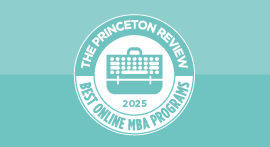
Improving your GMAT verbal score can seem more difficult than increasing your quantitative score.
After all, if you get a math problem wrong, it’s often a straightforward exercise to determine the cause. Maybe there was a formula that you didn’t know or a concept that you applied incorrectly. Fixing math mistakes can be as clear-cut as identifying what caused an error and learning how the GMAT tests that error.
Finding and Fixing Your Verbal Errors on the GMAT
Identifying the concepts that lead to verbal errors, by contrast, can feel a lot more difficult. If you get a Reading Comprehension question wrong, for example, you might be at a loss to explain what caused the error. Or, you might conclude that the problem was something such as, “I didn’t understand that part of the passage.” While that may be true, it’s not like you purposefully misunderstood that part of the passage. So, how do you improve a verbal score? What do you study?
The good news is that the GMAT verbal section does have rules. Verbal rules may not have the same level of precision as their math counterparts do—but still, there are rules you can learn! Some verbal rules apply to specific questions. Others apply to the entire verbal section. Here are three tips to keep in mind as you go about learning the rules for the GMAT verbal section.
Tip #1: Prioritize
There are three types of questions on the GMAT verbal section: Sentence Correction, Critical Reasoning, and Reading Comprehension. Each question type makes up roughly a third of the section. The questions are mixed throughout the section, so you might see two sentence corrections, followed by a critical reasoning question, followed by a Reading Comprehension passage with three questions. Each question type is equally important to your score.
Most people find that they are not equally good at each question type. It might seem reasonable to start by working on the question type for which you get the fewest correct on a GMAT practice test. However, that may not be the best approach.
In fact, most GMAT test-takers find it easiest and fastest to make substantial improvements on the Sentence Correction questions. By contrast, test-takers tend to find making improvements for Reading Comprehension questions the hardest and most time-consuming.
Keep the return on time invested in mind as you prioritize your studying. If your practice tests show that your performance on Sentence Correction and Reading Comprehension is about the same, then prioritize Sentence Correction. Even if your performance on Reading Comprehension is a little worse than your performance on Sentence Correction, it still probably makes sense to prioritize Sentence Correction as a way to maximize your study time—and ultimately, your score.
Tip #2: Have a Game Plan
Sometimes the point of a practice test is to come up with a plan for how to handle common testing situations.
When you review your practice tests, revisit the situations that left you feeling uncertain and forced you to waste time. Think about the best way to proceed when you encounter that type of situation again. Then, employ the tactic you came up with the next time you take a practice test—and, of course, when you take your actual GMAT.
Let’s say that you found yourself stuck between two answers for two or three Reading Comprehension questions. You may have referred back to the passage several times trying to decide which answer to choose. You may have also focused on the parts of each answer that you liked.
A better strategy might be to limit the number of times you refer back to the passage. Assuming that you've referred to the passage before looking at the answer choices—always a best practice—refer back only once more. If you find the information that helps you decide which answer is correct, you can pick an answer. If you didn’t, then switch gears. Try to find something that makes one of the answers wrong. Does one of the answers use extreme language? That could be a great reason to pick the other answer.
The point of this exercise is to think through what to do in these situations before you take your test rather than as you are taking your test. Doing well on the verbal section involves having a game plan for common situations that are likely to arise!
Tip #3: Analyze Your Errors
Most GMAT practice material comes with explanations. For example, the Graduate Management Admission Council® (GMAC) provides explanations for every question in the GMAT Official Guide. Explanations can often help you to understand the question and its credited answer, but they may not help you to understand your error.
For example, an explanation for a Reading Comprehension question might refer to a sentence in the passage that provides the support for the credited answer. The explanation may also point out some reasons that the other answers are incorrect.
It’s easy to read an explanation and say “Oh, I understand that.” The problem is that you’re never going to see that exact question again. So, you need to spend some time thinking about what the explanation won’t address—the cause of your error. If you know the cause of your error, you can devise a solution that you can then start practicing. Verbal improvements are often dependent on replacing bad habits with better habits.
When analyzing the causes of errors, it’s important to remember that you can only correct behaviors. Let’s say that you realize that you missed a word that made an answer wrong. You might be tempted to say something like “I need to read more carefully.” But, did you initially try to read in a way that wasn’t careful? Probably not. So, “read more carefully” isn’t really the most helpful solution.
Perhaps the real cause of the error was that you read the answer choice too fast and that resulted in your missing the essential word that made the answer incorrect. That’s a behavior you can fix. Perhaps you could read each answer as though you were pointing to each word. Or, perhaps you could (silently!) mouth each word in the answer. In these ways, you could learn to read answers at an appropriate speed and not miss that word that made the answer wrong.
Earning Your Best-Possible GMAT Verbal Score
Once you’ve prioritized your study strategy, made a game plan for test day, and analyzed your errors, you’ll be ready to sharpen your skills on each verbal question type. Here are targeted tips for every question type you’ll find on the GMAT verbal section:
Sentence Correction
Know the errors you’re likely to find. There’s a short list of grammatical and construction errors that occur in most Sentence Correction questions. These same errors are also used to create most of the wrong answers. So, learn to recognize common errors based on rules such as subject-verb agreement, misplaced modifiers, and parallel construction.
Find the ambiguity. The GMAT loathes ambiguity, so avoid answers that include pronouns that don’t have a clear antecedent and modifying phrases that aren’t next to the noun that they modify.
Keep it short. The GMAT favors concision, so if you are stuck between two answers, the shorter answer is more likely to the be the correct answer.
Critical Reasoning
Stick to the facts. The correct answer to an inference question can be proven from the facts presented in the argument. If you need to tell a story to get to the answer, it’s very likely incorrect!
Know what the answer needs to do. The answer to a weaken question attacks the assumption of the argument, while the answer to a strengthen question bolsters the assumption.
Watch out for new information. Be skeptical of new information in an answer choice. Unless that new information can be connected to an assumption of the argument, it likely makes the answer out of scope.
Reading Comprehension
Embrace your inner skeptic. Be skeptical of answer choices. Look for something that could make the answer wrong. Resist the urge to read each answer as though it is likely correct. After all, you are going to encounter more incorrect answers than correct answers!
Focus on understanding, not memory. The Reading Comprehension section tests your understanding of the passage rather than your recall of the passage. Correct answers tend to be paraphrases of the information in the passage. Be suspicious of answers that make you say, “Wait! I remember reading that!” In fact, the more that an answer sounds word-for-word from the passage, the less likely it is to be right.
Avoid extremes. Be suspicious of strong words such as must, always, and only in answer choices. Be suspicious of answers that make strong claims. The GMAT test-writers often include answers that overstate something mentioned in the passage.
Final Word
Maximizing your GMAT verbal score is a two-part process: First, you need to understand what you’re doing wrong, and then you need an affirmative strategy for success. Once you tackle both parts of that process, you’ll be well on your way to earning your best-possible score!
Looking for the perfect GMAT prep to suit your needs? Check out our wide range of GMAT test-prep options, and start your journey to business school!
Read More

Find MBA Programs Matched to Your Interests
Explore our featured business schools to find those that are looking for students like you.

Top Online MBA Programs
On a mission to increase your salary? Our Top 50 Online MBA ranking is based on academics, career outcomes, tech platforms, and more.

Best Career Prospects
Find out which schools have the best track records for getting students jobs—and the highest starting salaries.

Top Schools for Entrepreneurship
Ready to build your own business from the ground up? Check out these 50 graduate programs.